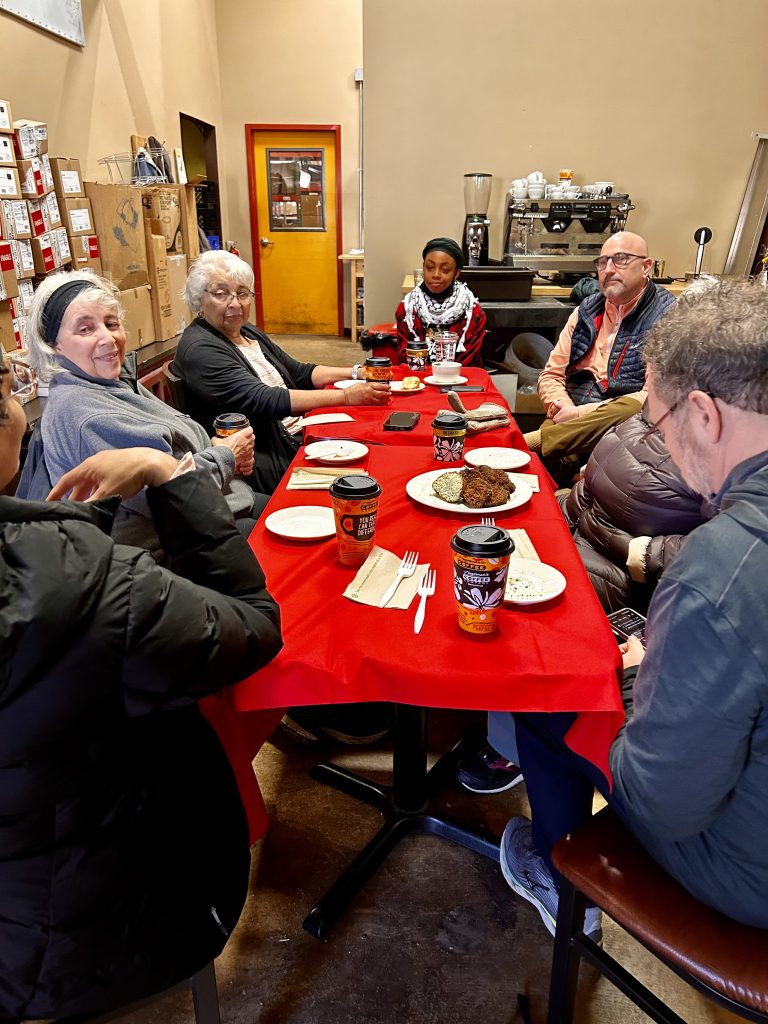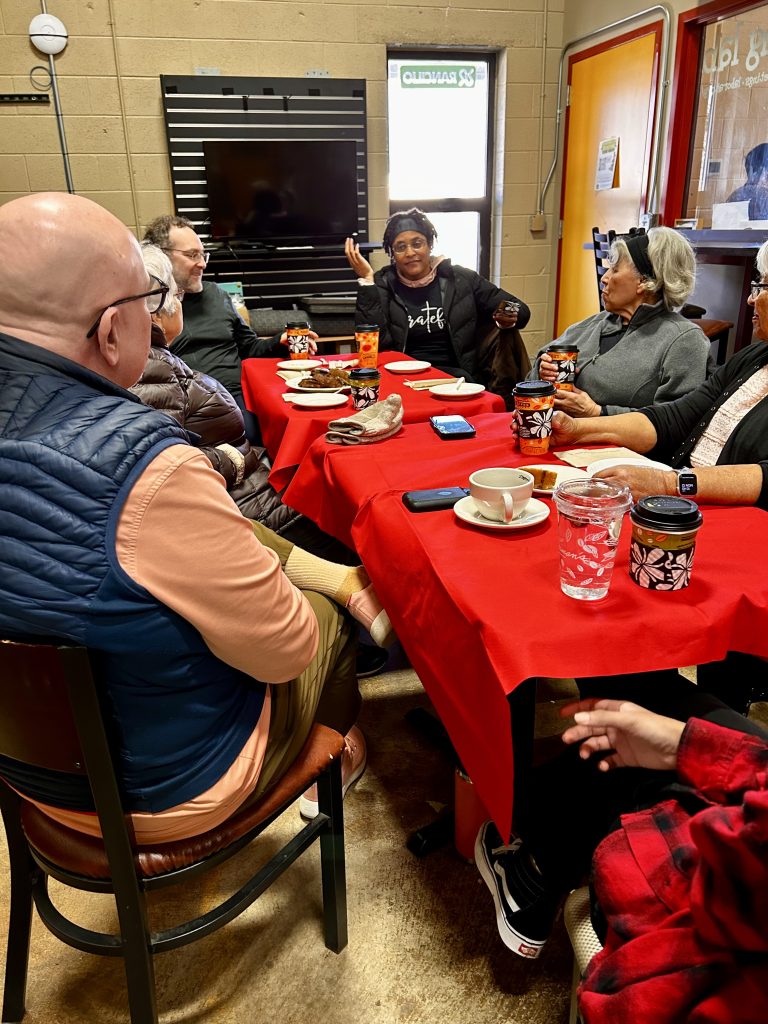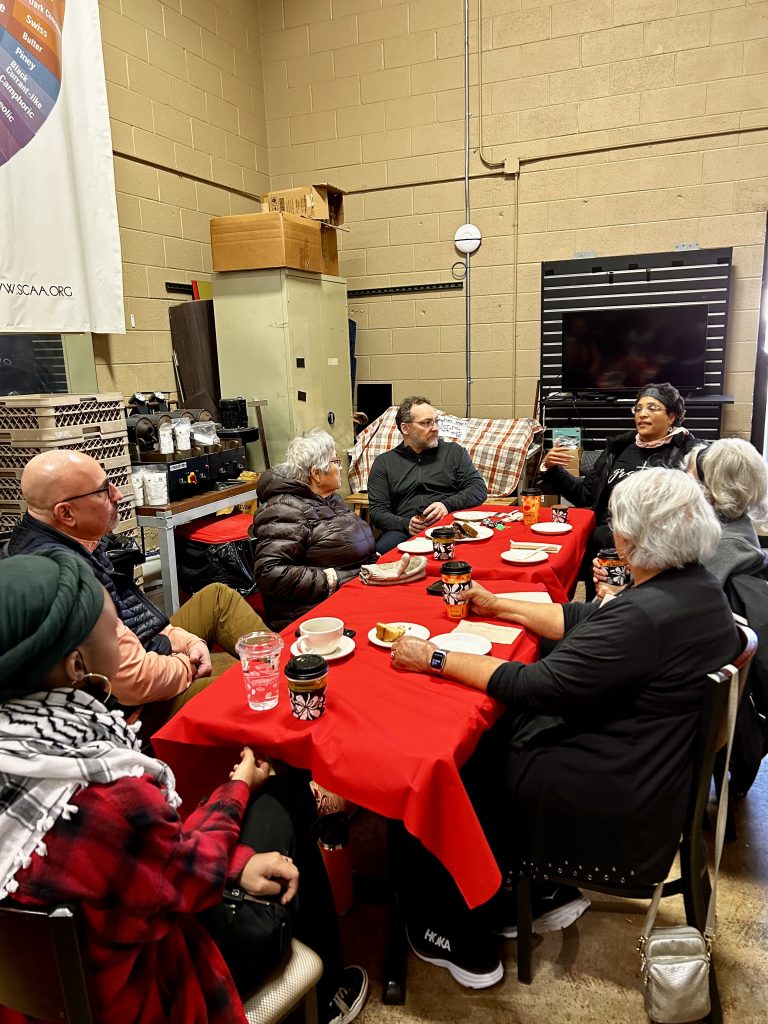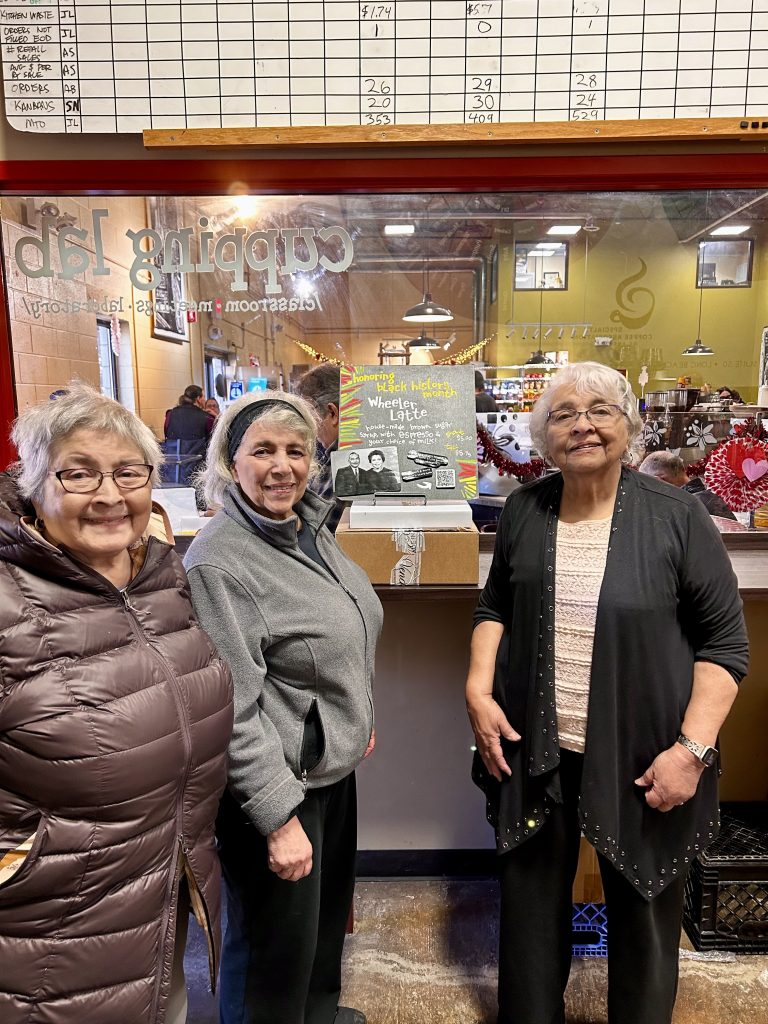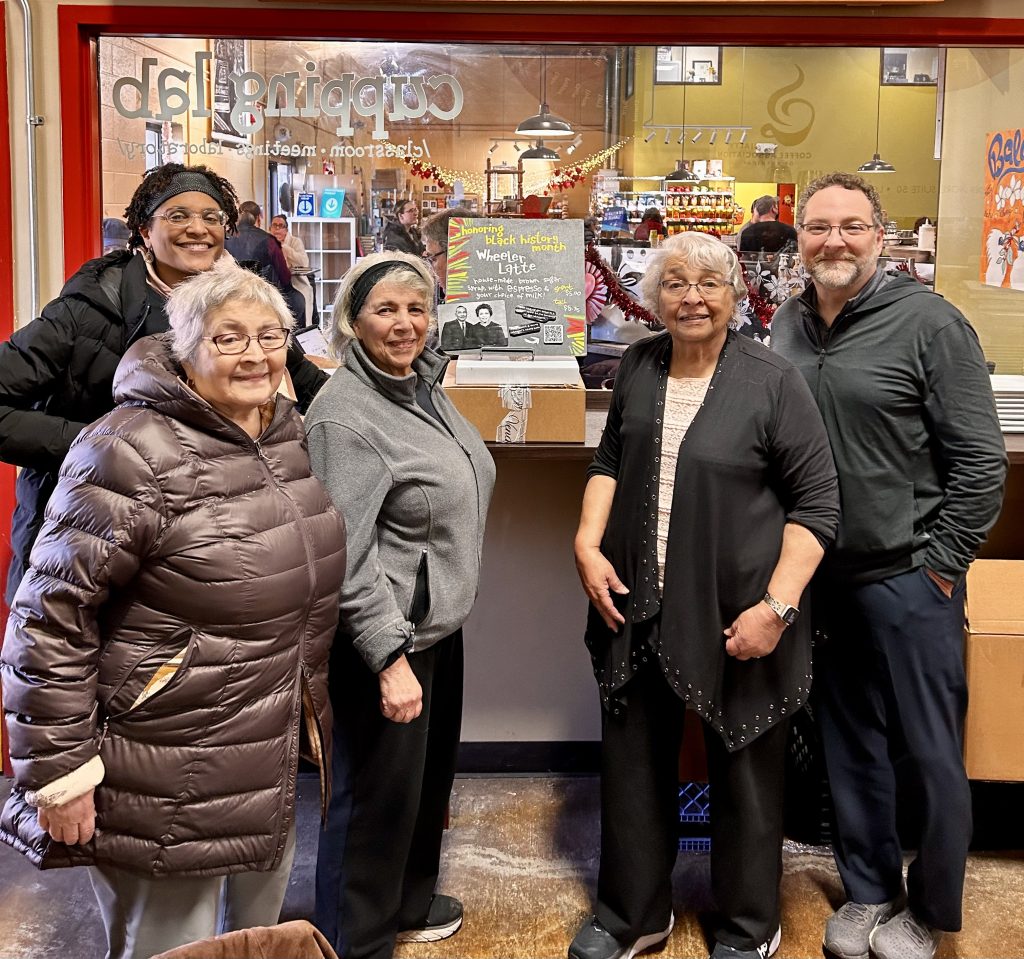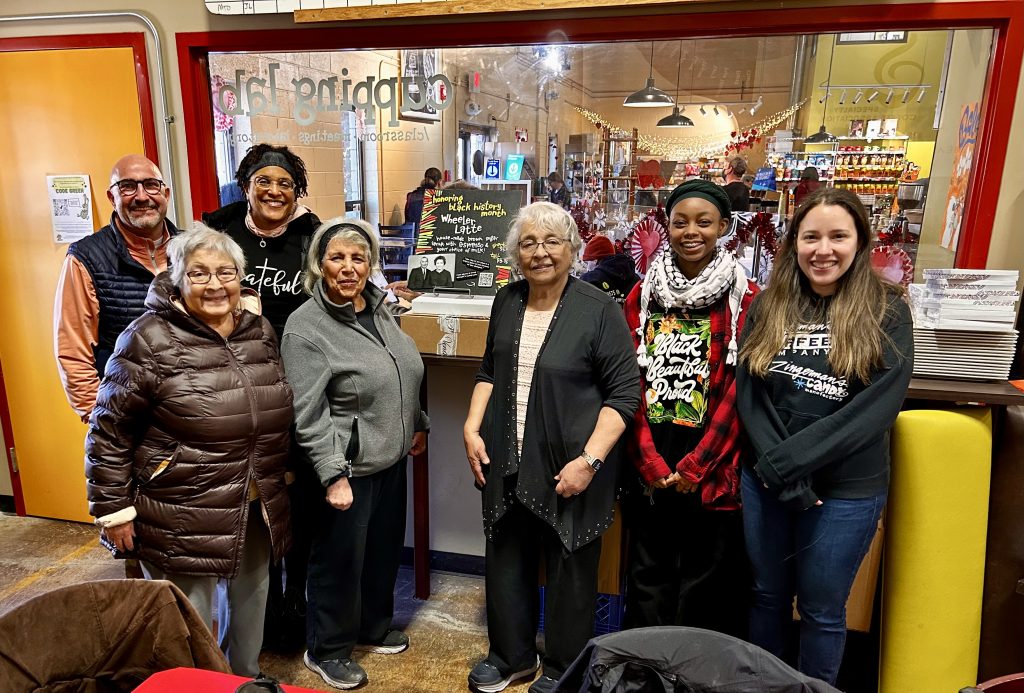The Wheeler Latte
Paying homage to one of Ann Arbor’s great historical leaders
By Ari Weinzweig – From Ari’s Top 5 Pick Newsletter, February 14th, 2024
On Monday, April 7, 1975, Albert Wheeler was elected as Mayor of Ann Arbor. I was entering my eighth month at the University of Michigan, a freshman who was mostly focused on finishing my first year at college without completely failing my finals. I saw Mayor Wheeler’s name in the newspaper now and again, but beyond that, I paid little to no attention.
Had I been practicing Folklorist Leadership, I would have tuned in much more closely! Wheeler’s election as mayor, I realize many years later, was monumental. He was the first and only Black man (to date, at least) to be elected mayor of this town, a town in which most people who aren’t Black will not know that in the years leading up to Wheeler’s election, had still been segregated through a series of nearly unspoken norms. As the Ann Arbor News later wrote,
Far away from the segregated lunch counters and water fountains of the Deep South, Ann Arbor was wrestling with its own brand of racism in the 1940s and 1950s. Blacks moving to town were only shown houses in the North Fourth Avenue area, a grimy neighborhood heavy with the odor of slaughterhouses and coal-fired plants. Jobs for African Americans at the University of Michigan usually got no better than cleaning floors or operating elevators.
Mayor Wheeler was born in the city of St. Louis back in 1915. He studied biology at Lincoln University, an HBCU in Pennsylvania. He came to town in the late 1930s to study at the School of Public Health at the time that the Great Depression was winding down and the geo-political tension in Europe that was about to turn into WWII was increasing. In 1945, when Wheeler and his wife Emma attempted to buy a house, the banker continually pushed them to look at buying only in Black neighborhoods. Nevertheless, the pair persevered. In 1952, Dr. Wheeler became the first Black professor at the University to be tenured. The Wheelers would go on to be instrumental in the founding of the Ann Arbor chapter of the NAACP. He first stood for mayor, unsuccessfully, in 1970, but ran again in 1975 and won.
As mayor, Wheeler worked to change beliefs about what a city government was supposed to do, advocating significantly increased services for its citizens. His path was not an easy one. Even in our fairly “liberal” city, he faced verbal and physical threats. Nevertheless, he pushed forward, working to help disadvantaged members of the community, create effective public housing, and more. He has been credited with instilling the idea that city government should be actively involved in human services, and that’s something the city continues to do. The Ann Arbor News noted that “a pattern of scattered public housing on small sites throughout Ann Arbor is another Wheeler legacy,” and that Wheeler “worked to avoid the large, isolated housing projects that other cities built with public funds.”
As Wheeler explained his deep dedication to working for Civil Rights in the city, “I thought I was working for what I was entitled to as a human being.” His daughter Mary McDade, an appellate court judge in my home state of Illinois, talks about how her father led with positive beliefs: “He recognized that as women and as Black people, it was going to be an uphill struggle to do anything in this life.” And yet, McDade says, “He was constantly reminding us that if you used your brains, if you applied yourself, there was nothing that you couldn’t do.” Wheeler’s daughters described how dinner conversations were always centered around politics (as long as their grades were good!). They attended marches as young children, and their parents ignited a fire inside them to carry forward their mother and father’s work. Mary and Nancy became judges. Alma became a state senator. And in their 70s and 80s, they are all still politically active to this day!
Albert Wheeler passed away at the age of 78 in 1994. In 1987, five years after we opened the Deli, the name of what had long been called Summit Park, a few blocks to the north of us, was changed to Wheeler Park. The plaque at the park says it well: “The city of Ann Arbor is a better place to live because of the Wheelers.”
In order to honor Albert Wheeler’s good work, and mark what is now nearly a half-century since he became mayor, the Coffee Company has created what we’re calling “The Wheeler Latte.” It’s a super tasty coming together of the Coffee Company’s Espresso Blend #1, a housemade Demerara brown sugar syrup, and steamed milk that comes in from Calder Dairy in Carleton, Michigan. In one of those great coincidences that are really only made possible by being so rooted in the local community, Wheeler’s grandson, Conan Smith, happened to come into the Coffee Company just as the crew was engaging in conversations about this new coffee drink! Conan, a long-time customer, has continued his grandparents’ community work, and served as the CEO of Michigan Environmental Council.
The Wheeler Latte is a tribute to Al Wheeler’s wonderful work here in the 20th century, and also a recognition of what we can all do to build on his caring community contributions. Order one up this week and make a toast to the mayor’s memory as a salute to the social improvements that he worked so hard to make happen, and that all of us remain responsible for today in 2024!
…………………
The Wheeler’s 3 daughters, Mary, Nancy & Alma, as well as two of the Wheeler’s grandchildren, Conan & Sara, visited the Coffee Company on February 12th, 2024 to talk with us. Below are some photos from their visit.
